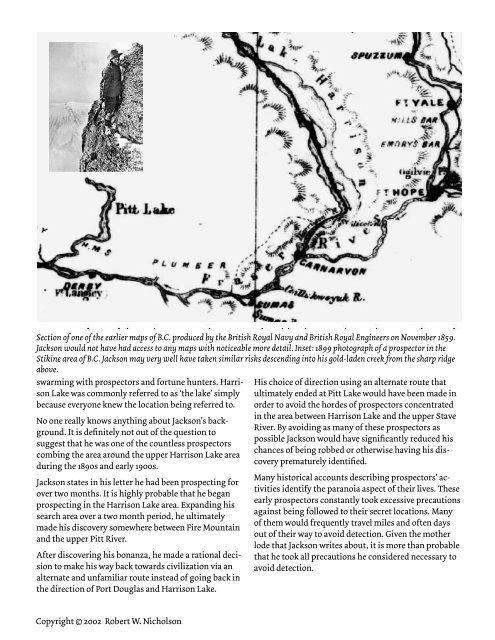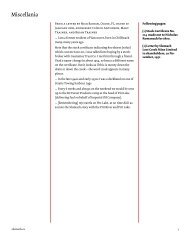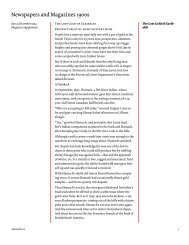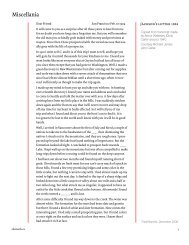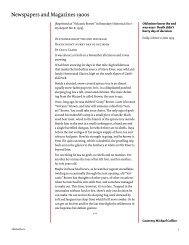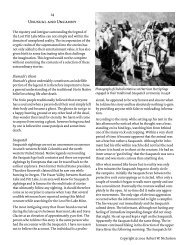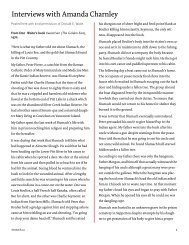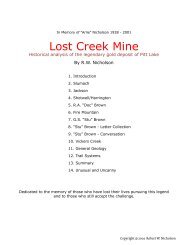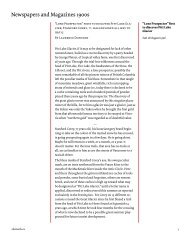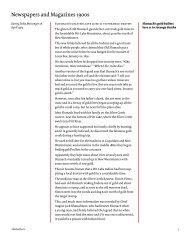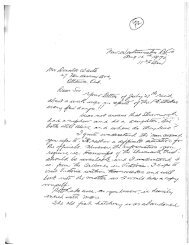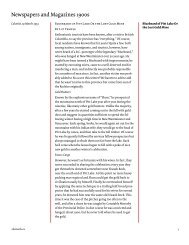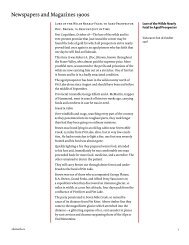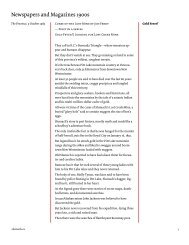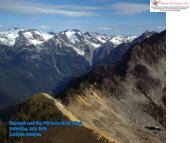3 Jackson (d. – Ca. 1906 ) - Slumach
3 Jackson (d. – Ca. 1906 ) - Slumach
3 Jackson (d. – Ca. 1906 ) - Slumach
You also want an ePaper? Increase the reach of your titles
YUMPU automatically turns print PDFs into web optimized ePapers that Google loves.
Section of one of the earlier maps of B.C. produced by the British Royal Navy and British Royal Engineers on November 1859.<br />
<strong>Jackson</strong> would not have had access to any maps with noticeable more detail. Inset: 1899 photograph of a prospector in the<br />
Stikine area of B.C. <strong>Jackson</strong> may very well have taken similar risks descending into his gold-laden creek from the sharp ridge<br />
above.<br />
swarming with prospectors and fortune hunters. Harrison<br />
Lake was commonly referred to as ‘the lake’ simply<br />
because everyone knew the location being referred to.<br />
No one really knows anything about <strong>Jackson</strong>’s background.<br />
It is definitely not out of the question to<br />
suggest that he was one of the countless prospectors<br />
combing the area around the upper Harrison Lake area<br />
during the 1890s and early 1900s.<br />
<strong>Jackson</strong> states in his letter he had been prospecting for<br />
over two months. It is highly probable that he began<br />
prospecting in the Harrison Lake area. Expanding his<br />
search area over a two month period, he ultimately<br />
made his discovery somewhere between Fire Mountain<br />
and the upper Pitt River.<br />
After discovering his bonanza, he made a rational decision<br />
to make his way back towards civilization via an<br />
alternate and unfamiliar route instead of going back in<br />
the direction of Port Douglas and Harrison Lake.<br />
His choice of direction using an alternate route that<br />
ultimately ended at Pitt Lake would have been made in<br />
order to avoid the hordes of prospectors concentrated<br />
in the area between Harrison Lake and the upper Stave<br />
River. By avoiding as many of these prospectors as<br />
possible <strong>Jackson</strong> would have significantly reduced his<br />
chances of being robbed or otherwise having his discovery<br />
prematurely identified.<br />
Many historical accounts describing prospectors’ activities<br />
identify the paranoia aspect of their lives. These<br />
early prospectors constantly took excessive precautions<br />
against being followed to their secret locations. Many<br />
of them would frequently travel miles and often days<br />
out of their way to avoid detection. Given the mother<br />
lode that <strong>Jackson</strong> writes about, it is more than probable<br />
that he took all precautions he considered necessary to<br />
avoid detection.<br />
Copyright © 2002 Robert W. Nicholson


